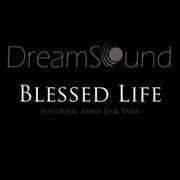Dr. Dre
| 基本信息 | |||
|---|---|---|---|
| 姓名 | Dr. Dre | 别名 | 暂无 |
| 国籍 | 美国 | 出生地 | 美国洛杉矶 |
| 语言 | 英语 | 性别 | 男 |
| 生日 | 1965-02-18 | 星座 | 水瓶座 |
| 身高 | 体重 | ||
Dr. Dre原名b. Andre Young,生于1965年2月18日,洛杉矶的South Central。被公认为西海岸痞子说唱的创始人和领军者,滚石杂志尤其推崇他。Dre的音乐生涯开始于洛杉矶的一家跳舞俱乐部Eve After Dark,他在那里做DJ,把一些灵魂乐的经典如Martha和The Vandellas重新混音。这家俱乐部有个放着一个小4轨录音机的后台工作室。在那儿他还与后来的N.W.A乐队成员Yella和Lonzo Williams合作了一些demo录音,而其中第一首是Surgery,一个简单的电子节奏音轨和一句Calling Dr Dre to surgery的和音这些在Eve After Dark的日日夜夜磨练了他的打碟技术,为其后来加入N.W.A奠定了基础,在N.W.A之前,他还组建了the World Class Wreckin' Cru,那时候他才17岁。尽管乐队其他成员也为rap融入主流做出了巨大贡献,但是正是Dre的首张个人专辑The Chronic确立了说唱乐商业上的成功。这张专辑同样为痞子说唱乐指明了方向。他的音乐从George Clinton和Funkadelic那里得到灵感,Dre直率的承认了Clinton对他生活的影响,"会想起70年代,人们穿着非洲式的服装,喇叭裤,每天high,听Parliament-Funkadelic的音乐,这也是为什么我把我的专辑命名为Chronic(意为长期,慢性),我的音乐概念就如同我的行为一样,因为他那些屁话确实影响了我的生活,非常大的影响。"在这段日子的最后,他组建一支录音室乐队,包括R&B的天才乐手Tony Green (bass)和Ricky Rouse (guitar)。这时候Dre的歌词已经象在NWA时期那些精彩词作一样雄辩而富于说服力,而在题材上也有所变化。The Chronic强调的是大麻的娱乐作用,而淡化了它的声名狼藉的毒害作用。当尝试大麻还更多的只是纸上谈兵的时候,由于Dr.Dre和Cypress Hill的共同努力,大麻现在已经成为痞子说唱乐手们的首选药物。The Chronic专辑在Billboard排行榜的前10位停留了8个月。这至少提升了Dre作为一个制作人的名声。Dre还为他许多女友中的一位Michel'le制作过一张专辑,他还和Eazy-E, D.O.C., Above The Law等人合作过。其中最重要的是和Snoop Doggy Dogg的合作,使之打到了一个新境界。Dogg和Dre合作过一系列的热门单曲,包括"Deep Cover"以及"Nuthin"等。尽管DoGG风格的作品屡次打破官方销售纪录,把痞子摇滚带到排行榜的前列,但是真正的最大功臣是Dr.Dre。用Dr.Dre自己的话说就是"我花了3年时间和他一起制作出了这张热门专辑。"同时他对自己在N.W.A乐队中的大胆探索,特别是具有里程碑意义的专辑Straight Outta Compton却显得并不在意。"今天我已经厌烦了那张专辑,我把它扔了,腾出位置来放新东西。"在他临时组建NWA的同时,他还担任了Eazy-E's Ruthless唱片公司的制作人。1983到1991年间他为这个厂牌制作的9张专辑中的8张达到了白金销量,后来他脱离了这家厂牌,原因是他没有得到应有的报酬。其后Dre录制了一些歌曲讽刺这家公司,包括单曲"Dre Day",奚落这家公司没有付报酬的行为。就象大多数rap明星一样,Dre从来就是富有争议的,甚至当他买进位于San Fernando的豪宅的时候,也受到了争议。Dre得耗费金钱精力和权威对抗,这样他才有可能做一个真正的痞子说唱歌手。1991年,电视主持人Dee Barnes曾经花费数百万美元控告Dre在一家好莱坞夜总会把他扔了出去,碰到了墙上。他还曾经被控打破了一位制作人的下巴,结果被判在家服刑,并且被安装监视器随时跟踪,还有一次在新奥尔良因为在一家酒店的大厅闹事儿被当地警方拘留。Eazy-E唱片个公司也曾经因为他抱怨唱片公司的商业运作和资金问题,并且诅咒经理Jerry Heller,最后他只好找到Interscope的Jimmy Iovine,在他的帮助下和同样有争议的Marion "Suge" Knight以及Vanilla Ice的代理人建立了自己的厂牌Death Row Records。由于The Chronic专辑和Doggy的成功,以及签下了说唱乐的超级新星2Pac,这一切使得Death Row成为当时美国最有影响力的唱片公司之一。但是就在1996年公司一切运转良好,风头鼎盛的时候,Dr.Dre突然无情的出走组建了自己的公司Aftermath。新公司的首张专辑是一张合集,其中优秀的单曲是着Dre滔滔不绝风格的Been There Done That,这是对痞子说唱乐和Death Row唱片公司的一次巨大冲击。1998年Dre又出现在媒体的焦点里,这一次他是作为Eminem那张极具冲击力和争议的LP专辑The Slim Shady的制作人出现的。接下来的11月,他出版了一张对于乐迷等待已久的专辑Dr. Dre 2001,其中与众多的说唱艺人包括Eminem, Snoop Dogg, Mary J. Blige和Xzibi合作,这张专辑同时也体现了Dre在痞子说唱乐中的先导地位by Stephen Thomas ErlewineMore than any other rapper, Dr. Dre was responsible for moving away from the avant-noise and political stance of Public Enemy and Boogie Down Productions as well as the party vibes of old-school rap. Instead, Dre pioneered gangsta rap and his own variation of the sound, G-funk. BDPs early albums were hardcore but cautionary tales of the criminal mind, but Dres records with N.W.A. celebrated the hedonistic, amoralistic side of gang life. Dre was never much of a rapper — his rhymes were simple and his delivery was slow and clumsy — but as a producer, he was extraordinary. With N.W.A. he melded the noise collages of the Bomb Squad with funky rhythms. On his own, he reworked George Clintons elastic funk into the self-styled G-funk, a slow-rolling variation that relied more on sound than content. When he left N.W.A. in 1992, he founded Death Row Records with Suge Knight, and the label quickly became the dominant force in mid-90s hip-hop thanks to his debut, The Chronic. Soon, most rap records imitated its sound, and his productions for Snoop Doggy Dogg and Blackstreet were massive hits. For nearly four years, G-funk dominated hip-hop, and Dre had enough sense to abandon it and Death Row just before the whole empire collapsed in late 1996. Dre retaliated by forming a new company, Aftermath, and while it was initially slow getting started, his bold moves forward earned critical respect.Dre (born Andre Young, February 18, 1965) became involved in hip-hop during the early 80s, performing at house parties and clubs with the World Class Wreckin Cru around South Central Los Angeles and making a handful of recordings along the way. In 1986, he met Ice Cube, and the two rappers began writing songs for Ruthless Records, a label started by former drug pusher Eazy-E. Eazy tried to give one of the duos songs, Boyz-n-the Hood, to HBO, a group signed to Ruthless. When the group refused, Eazy formed N.W.A. — an acronym for Niggaz With Attitude — with Dre and Cube, releasing their first album in 1987. A year later, N.W.A. delivered Straight Outta Compton, a vicious hardcore record that became an underground hit with virtually no support from radio, the press, or MTV. N.W.A. became notorious for their hardcore lyrics, especially those of Fuck tha Police, which resulted in the FBI sending a warning letter to Ruthless and its parent company, Priority, suggesting that the group should watch their step.Most of the groups political threat left with Cube when he departed in late 1989 amid many financial disagreements. While Eazy appeared to be the undisputed leader following Cubes departure — and he was certainly responsible for the group approaching near-parodic levels with their final pair of records — the music was in Dres hands. On both the 1990 EP 100 Miles and Runnin and the 1991 album Efil4zaggin (Niggaz4life spelled backward), he created dense, funky sonic landscapes that were as responsible for keeping N.W.A. at the top of the charts as Eazys comic-book lyrics. While the group was at the peak of their popularity in 1991, Dre began to make efforts to leave the crew, especially after he was charged with assaulting the host of a televised rap show in 1991. The following year, Dre left the group to form Death Row Records with Suge Knight. According to legend, Knight held N.W.A.s manager at gunpoint and threatened to kill him if he refused to let Dre out of his contract.Dre released his first solo single, Deep Cover, in the spring of 1992. Not only was the record the debut of his elastic G-funk sound, it also was the beginning of his collaboration with rapper Snoop Doggy Dogg. Dre discovered Snoop through his stepbrother Warren G, and he immediately began working with the rapper — Snoop was on Dres 1992 debut, The Chronic, as much as Dre himself. Thanks to the singles Nuthin but a G Thang, Dre Day, and Let Me Ride, The Chronic was a multi-platinum, Top Ten smash, and the entire world of hip-hop changed with it. For the next four years, it was virtually impossible to hear mainstream hip-hop that wasnt effected in some way by Dre and his patented G-funk. Not only did he produce Snoops 1993 debut, Doggystyle, but he orchestrated several soundtracks, including Above the Rim and Murder Was the Case (both 1994), which functioned as samplers for his new artists and production techniques, and he helmed hit records such as Blackstreets No Diggity, among others, including a hit reunion with Ice Cube, Natural Born Killaz. During this entire time, Dre released no new records, but he didnt need to — all of Death Row was under his control, and most of his peers mimicked his techniques.The Death Row dynasty held strong until the spring of 1996, when Dre grew frustrated with Knights strong-arm techniques. At the time, Death Row was devoting itself to 2Pacs label debut, All Eyez on Me (which featured Dre on the breakthrough hit, California Love), and Snoop was busy recovering from his draining murder trial. Dre left the label in the summer of 1996 to form Aftermath, declaring gangsta rap dead. While he was subjected to endless taunts from his former Death Row colleagues, their sales slipped by 1997 and Knight was imprisoned on racketeering charges by the end of the year. Dres first album for Aftermath, the various-artists collection Dr. Dre Presents...The Aftermath received considerable media attention, but the record didnt become a hit, despite the presence of his hit single, Been There Done That. Even though the album wasnt a success, the implosion of Death Row in 1997 proved that Dres inclinations were correct at the time. Both 2001 and its companion instrumental version followed in 1999.
 加载评论内容,请稍等......
加载评论内容,请稍等......













